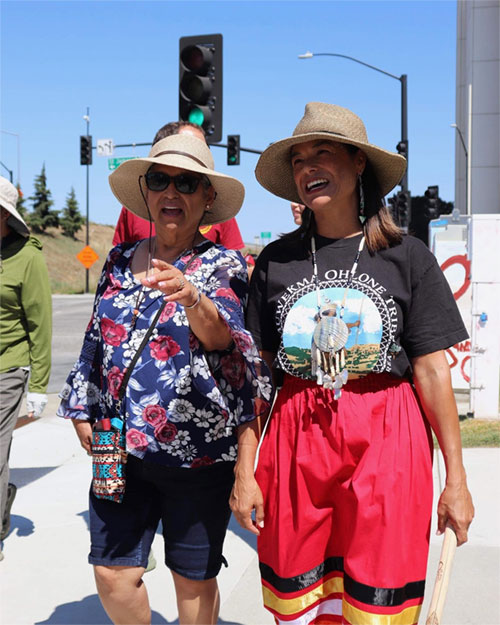Native American Casinos – The Myths and the Facts
 There are a great deal of misconceptions surrounding the casinos built on Native American land. One of the most prevalent is that the tribes make fortunes from gambling and what they do with the money is secret. That in turn leads to the myth that the money is used to fund luxurious lifestyles for those who run the casinos. The facts are very different.
There are a great deal of misconceptions surrounding the casinos built on Native American land. One of the most prevalent is that the tribes make fortunes from gambling and what they do with the money is secret. That in turn leads to the myth that the money is used to fund luxurious lifestyles for those who run the casinos. The facts are very different.
Casino Operations Are All Tax-Free
This is only partially true. Native American land is outside the purview of the federal and state governments so they cannot levy any taxes on tribal commercial activities, including the casinos. That said, there are often revenue sharing compacts and other stipulations that see the casinos paying state or county authorities a percentage of their profits. This is to cover the cost of the external infrastructure (outside the reservations) that supports casino operations. Salaries and other payments made to tribal members are taxable at the prevailing federal and state government rates. Players must pay tax on their winnings, even if they are tribal members.
Security Is Tight
If you go to a tribal casino and try to cheat or do anything that is not permitted, you are potentially in big trouble. More so than in Las Vegas where casino security can only watch and report questionable activities to the local police. Tribal casinos are on sovereign land so security is provided by reservation police forces that have the power to investigate, search, and even detain those suspected of criminal actions. However, the police can only arrest other Native Americans. For others, the reservation police have to call state or county police to formally arrest suspects.
Tribal Casinos Are Big Business
Tribal casinos are not small back-alley operations. The combined gaming revenue of these casinos in 2021 was $39 billion, while the revenue from the casinos on the Las Vegas Strip was $7 billion. Of course, there are over 500 Tribal casinos while there are about 30 on the strip. Even then, the size difference is considerable.
Also Read: Protecting Native American Land
Regulations Are Different
In Las Vegas, there are a plethora of regulations that govern the operation of all casinos. In the case of Tribal casinos, they are run according to the procedures laid down by the National Indian Gaming Commission. The rules about payout percentages are not clear so some casinos may have tighter odds and others looser ones. The playing experience may vary from one Tribal casino to another.
The Casinos Reduce Local Unemployment
For both cultural and legal reasons, most of the people working in the casinos are Native Americans. These are people who have few other employment avenues and the salaries that they earn support thousands of families that would otherwise face great financial hardship.
Profits Create Infrastructure
The profits from casino operations stay within the reservation and are used to fund housing and other social activities for the betterment of the residents. Native Americans are among the most economically disadvantaged communities in the U.S. and this goes a long way towards improving the quality of life on the reservations.
Of course, there are downsides to these casinos. The increase in gambling, substance abuse, stress, and crime can be linked to casinos, as is the case around the world. However, the fact remains that overall, the casinos have contributed to Tribal welfare and community well-being. Not all Tribes operate casinos and some depend on other factors. The community support for the Muwekma Ohlone Tribe restoration is an example of how some tribes find alternative ways to help their enrolled members.
Also Read: Why Is Tribal Sovereignty Important to Native American Tribes
Read: New capitalists: law, politics, and identity surrounding casino gaming on Native American land (Case Studies On Contemporary Social Issues) by Eve Darian-Smith.
Study Overview
This case study examines the impact of casino gaming on Native American reservations, and also explores why the idea of rich Indians and their participation in corporate America disrupts dominant assumptions and attitudes about indigenous peoples, their cultural authenticity, and their place in mainstream urban society. Taking an anthropological approach to studying gaming on Indian reservations, the case study explores the implications and challenges of historically marginalized peoples now participating in a corporate entertainment industry. The study raises broader questions about the nature of capitalism and the enduring stability of predominant cultural constructs about Indians that have dominated the country's political and economic arenas. By linking gaming with tourism, what is occurring within the United States is comparatively discussed with similar developments in Canada, Australia, and Mexico where native peoples are increasingly demanding greater rights to participate in the formal institutions and governments of modern western societies. Using extensive interviews with tribal elders, employees of reservation casinos, Las Vegas casino operators, and a broad spectrum of the California public, the book will serve to: 1. Introduce readers to the legal, political, economic and cultural tensions surrounding casino operations on Native American reservations. 2. Explore why gaming has become such a politically and emotionally charged issue. 3. Emphasize how these tensions existing between Indian and non-Indian communities are representative of wider cultural conflicts and identity politics increasingly confronting many countries
- Nov 29, 2023
